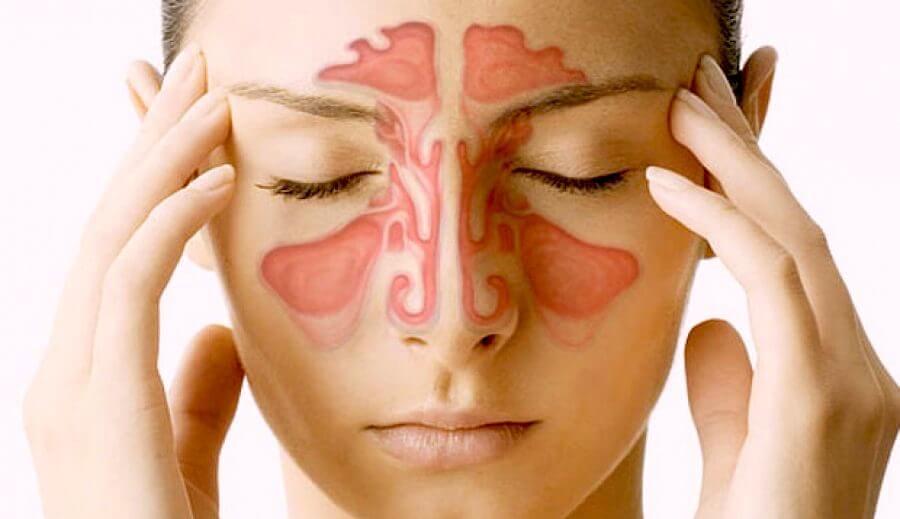Summary
Increased vagal tone
Long Exhales have a global effect on every organ in the body through the inhibitory effect of the vagus nerve. There is a huge body of research that has been going on for many decades.
Increased cellular respiration
Slowing down the breath naturally, will mildly increase CO2 levels in the blood stream. This has 2 effects: increases the production of red blood cells and promotes the growth of new blood vessels.
Release of Nitric Oxide
If you follow the method outlined in This Next Breath, a later stage will come when the paranasal sinuses continuously release modest amounts of Nitric Oxide. Nitric Oxide cleans the blood, expands the blood vessels, speeds up synaptic transmission, is involved in better memory, cognitive ability and neuroplasticity. Decades of research have shown Nitric Oxide has wide ranging effects on the heart, lungs, gut and brain.
Activation and Balancing of the Pituitary
The method outlined in This Next Breath wakes up the Pituitary and deep structures of the brain. The pituitary is our pharmaceutical factory in the body producing a wide range of pain killers, pleasure and reward chemicals, human growth hormone, sex hormones, energizing hormones. We know the breath can relieve pain through both perception and physiology.
Increased activity of the Corpus Callosum
The Corpus Callosum is a area of the brain that is comprised of 200 million horizontal axons connecting right and left hemispheres of the brain. This area has been shown to become very active with alternate brain hemisphere breath (nadi shodhana.)
Bacteria, Viruses, Mold, Parasites
The MIcrobiome! We humans are “super organisms” that harbor trillions of bacteria, viruses, mold and parasites. Many of them beneficial and necessary for our survival and many are the cause of our diseases. They live in our gut, blood stream, heart, lungs, brain and every part of the body. They have a powerful influence over our wellbeing and thinking.
Nitric Oxide is an antibacterial, antifungal, antiviral, antimicrobial gas that can keep your microbiome in check. Usually, lots of bacteria, viruses, mold and parasites live in your lungs and then are sent through out the body. When the nitric oxide is released from the paranasal sinuses, it kills the bacteria in the blood going to your brain. Yoga practitioners who do “asana-only” miss out on this critical step in yoga because they never get to this stage.
Interesting Research and Reading:
Respiratory system overview. https://en.wikipedia.org/wiki/Respiratory_system
Review of 1400 research studies on pranayama https://www.ncbi.nlm.nih.gov/pmc/articles/PMC6470305/
Different types of Breathing Problems https://www.webmd.com/lung/breathing-problems#1
Study compares Nadi Shodhana to Sun Salutations. Both increased well being, but Nadi Shodhana was helpful for anxiety and “cognition” The mental process of knowing, including aspects such as awareness, perception, reasoning, and judgment.
https://pubmed.ncbi.nlm.nih.gov/24968492/
Ventilation to Perfusion Ratio
https://en.wikipedia.org/wiki/Ventilation/perfusion_ratio
Increasing Vagal Tone https://www.iahe.com/docs/articles/6_Ways_to_Instantly_Stimulate_Your_Vagus_Nerve_to_Relieve_Inflammation.pdf
Respiration connected to vocalization, coughing, sneezing, vomiting, pelvic organs, bladder, uterus, prostate, seminal vesicles, colon and rectum https://www.sciencedirect.com/science/article/pii/B9780444632746000205
Deep Breathing Exercises after Cardiac Surgery https://www.ncbi.nlm.nih.gov/pubmed/24937500
Breathing exercises show improved oxygenation in standing position. https://www.ncbi.nlm.nih.gov/pubmed/26134462
Nitric Oxide Overview https://books.google.com/books?hl=en&lr=&id=U83cBwAAQBAJ&oi=fnd&pg=PP10&dq=nitric+oxide+and+intelligence&ots=OzOrOQNS_7&sig=5gNqxGVNq2h4obyCle7NZbQTRhI#v=onepage&q=nitric%20oxide%20and%20intelligence&f=false
Nitric Oxide and Heart Disease https://www.sciencedirect.com/science/article/pii/S0741521404005026
Nitric Oxide and Brain function https://www.sciencedaily.com/releases/2008/11/081126133403.htm
Nitric Oxide and Memory https://www.ncbi.nlm.nih.gov/pubmed/23175201
Nitric Oxide and Humming
https://www.ncbi.nlm.nih.gov/pubmed/12119224
https://www.ncbi.nlm.nih.gov/pubmed/23547821
Nitric Oxide and the Gut
https://www.ncbi.nlm.nih.gov/pmc/articles/PMC2582807/
Blood Pressure and Heart Rate Variability during Yoga-Based Alternate Nostril Breathing Practice and Breath Awareness
https://basic.medscimonit.com/abstract/index/idArt/892063
Breathing above the brain stem: volitional control and attentional modulation in humans https://doi.org/10.1152/jn.00551.2017
Kapalabhati and Heart function pdf
Kapalabhati: https://basic.medscimonit.com/download/index/idArt/894945
Bhramari Bumble Bee and cardiovascular health https://www.ncbi.nlm.nih.gov/pmc/articles/PMC4097894/
Bhramari overview of many studies
https://www.ncbi.nlm.nih.gov/pmc/articles/PMC5755957/
Bhramari Bumble Bee increased gamma wave https://www.ncbi.nlm.nih.gov/pubmed/18299208
Gamma Wave https://en.wikipedia.org/wiki/Gamma_wave
Ujjayi versus slow breathing https://www.ncbi.nlm.nih.gov/pmc/articles/PMC3655580/
Traditional “cooling breaths” Sheetali and Sitkari significantly raised body temperature and oxygen consumption! https://www.ncbi.nlm.nih.gov/pubmed/31907342
Chanting Om inhibits emotional brain center (Limbic), fear center (Amygdala.) Control group chanted “sssss” https://www.ncbi.nlm.nih.gov/pmc/articles/PMC3099099/
Rhinosinusitis: https://www.ncbi.nlm.nih.gov/pmc/articles/PMC3968697/
Nitric Oxide production: https://journals.physiology.org/doi/full/10.1152/japplphysiol.00096.2002
Left versus right nostril study
https://www.ncbi.nlm.nih.gov/pmc/articles/PMC3978938/
Alternate Nostril Breath Increased perception and attention
https://www.basic.medscimonit.com/abstract/index/idArt/914956
Pranayama increases ability to focus, decreased mind wandering, improved arousal levels, more positive emotions, decreased emotional reactivity, balances noradrenaline, slows down aging.
https://www.sciencedaily.com/releases/2018/05/180510101254.htm
Nasal versus Mouth Breathing : https://onlinelibrary.wiley.com/doi/abs/10.1046/j.1365-201x.1998.00352.x
Guanylyl cyclase https://en.wikipedia.org/wiki/Guanylate_cyclase
Nitric Oxide functions https://www.reading.ac.uk/nitricoxide/intro/no/biol.htm
Nitric Oxide and Viagra (sildenafil) for pulmonary hyertension https://www.ncbi.nlm.nih.gov/pubmed/22057829
Nitric Oxide and Synaptic Function https://www.annualreviews.org/doi/pdf/10.1146/annurev.ne.17.030194.001101
Nitiric Oxide and Macrophages
"Sustained production of NO endows macrophages with cytostatic or cytotoxic activity against viruses, bacteria, fungi, protozoa, helminths, and tumor cells."
https://www.annualreviews.org/doi/pdf/10.1146/annurev.immunol.15.1.323
Mantraa and Cardiovascular Rhythm https://www.ncbi.nlm.nih.gov/pmc/articles/PMC61046/
Oxygen Saturation in meditation versus controlled breathing https://onlinelibrary.wiley.com/doi/abs/10.1111/psyp.12972
Oxygen, Exercise and Respiration. Diabetes and Respiration, Effects of Slow Breathing https://cdn.ymaws.com/www.iayt.org/resource/collection/BCD9CE96-E8BA-45D3-908A-A421A8E3EA86/kripalu-handout-rid1.pdf
Essential oils: hundreds of studies
https://www.tomgillette.com/oils
Alternate Nostril and Memory https://www.ncbi.nlm.nih.gov/pmc/articles/PMC4800515/
Left nostril breathing improves vagal tone, increases HRV, and promotes cardiovascular health. Right nostril breathing could jeopardize cardiovascular health. https://www.ncbi.nlm.nih.gov/pubmed/24741554
One breath per minute Alternate Nostril Breath and Cardiac health https://www.liebertpub.com/doi/pdf/10.1089/acm.2004.10.757
One breath per minute Alternate Nostril breath https://ieeexplore.ieee.org/document/1616968/citations#citations
Headstand does not increase blood flow to the brain.
https://pubmed.ncbi.nlm.nih.gov/31219304/
Increased nitric oxide levels
Adults and children who mouth breathe are deprived of nitric oxide, which your body produces in large amounts in the paranasal sinuses.
The body produces 25 percent of its nitric oxide from nose breathing, and mouth breathing can eliminate nitric oxide. (9)
Here are just some of the benefits of nitric oxide:
enhances memory and learning (10)
regulates blood pressure (11)
regulates inflammatory response (12)
improves sleep quality (13)
increases endurance and strength (14)
promotes weight loss (15)
improves immune/gut function (16)
relieves pain (17)
reduces heart disease risk (18)
helps improve symptoms of anxiety and depression (19)
;Newer Research
How slow deep breathing results in positive emotions and more creativity









